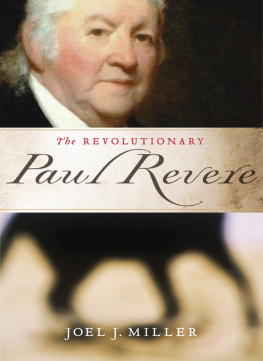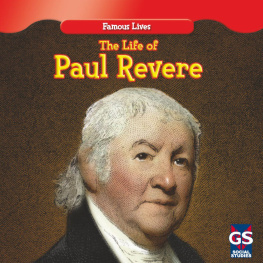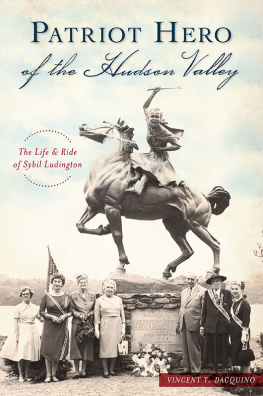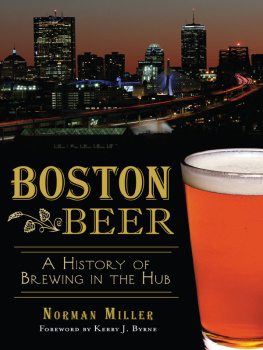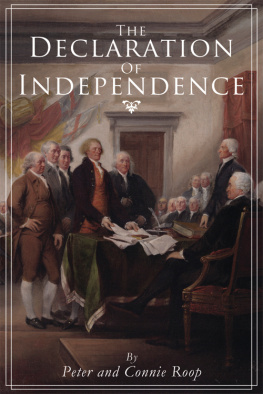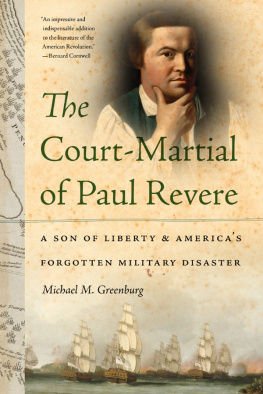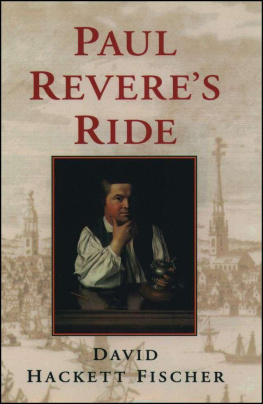P aul Revere sat down at his desk. He readied a quill, opened an ink bottle, and spread several sheets of paper before him. He was an old man now, gray-haired and wrinkled, but his eyes were bright. Those brilliant brown gems gleamed as intensely as they did when he was young. Back then his hair was dark enough to match, worn long, and tied back in a queue. Now it was cut short and hung loose about his collar. Young or old, he was always a stocky man, thick in the chest and shoulders, his rugged hands used to long days firing furnaces, hammering billets of silver, and wielding cold chisels and etching needles. Now those sturdy and calloused fingers took up his pen.
He wrote to Rev. Jeremy Belknap, a local minister, historian, and the secretary of the Massachusetts Historical Society. Dear Sir, he started, each stroke and cross of his quill making a light scratching sound on the surface of the paper. Having a little leisure, I wish to fullfill my promise, of giving you some facts, and Anecdotes, prior to the Battle of Lexington, which I do not remember to have seen in any history of the American Revolution. Belknap and his associates at the society desired to gather and preserve as many historical records as possible. Reveres story fit the bill perfectly.
It was now 1797, more than two decades after those events, and they were still firebrand fresh in his mind, such as the time when he rode to New York, freighted with news about the Boston Tea Party, or to Philadelphia with copies of the Suffolk Resolves tucked in his leather saddlebags. Others were fresher still.
He wrote about the time when he and several other artisans and mechanics formed a spy ring for the purpose of watching the Movements of the British Soldiers, and gaining every intelegence of the movements of the Tories. He told Belknap how they would take turns, two and two, to Watch the Soldiers, By patroling the Streets all night. Bad luck for the patriots; they werent the only spies. Revere told Belknap about a traitor who exposed all their secrets to the British general and royal governor, Thomas Gage.
Reveres pen swept across the page, describing one scene after another (all with the idiosyncratic spelling and punctuation common to the time). Central to the whole story was the night of 18 April 1775. As he penned it, redcoats mustered, and Pauls friend, the patriot leader Joseph Warren beged that I would imediately Set off for Lexington, where Messrs. Hancock and Adams were, and that it was thought they were the objets.
He wrote about how he set a signal in North Church steeple, rowed across the Charles River, borrowed a horse, and charged across Charlestown Neck toward Lexington; how he ran into a British patrol, evaded capture, and alarmed almost every House, till I got to Lexington, where he alerted John Hancock and Samuel Adams to the approaching danger.
He told about how he met up with one rider, then another, and how the three of them set off to spread the alarm to Concord, a town just up the road, where colonists kept a vast store of gunpowder and arms.
Paul never made it. As he told Belknap, a redcoat patrol ambushed them. The patrol nabbed Revere, and an officer clapped his pistol to my head, called me by name, and told me he... would blow my brains out. After some questioning, Paul and the soldiers heard a volley fired, coming from Lexington. It spooked the redcoats. The militia was out. The soldiers took Pauls horse, let him go, and bolted away into the dark. The moon threw a pale light on the wet ground, and Revere was able to make his way by its cast. He stumbled through the headstones of a graveyard and some pastures until he came again into Lexington.
After Pauls arrival, Adams and Hancock decided to leave Lexington for Woburn, a nearby village, far enough away from the imminent trouble. Paul joined them, saw that they arrived safely, and then made his way back to Lexington in the early morning hours. Once back, he walked toward Buckman Tavern and a Man on a full gallop... told us the Troops were coming up the Rocks. Another rider confirmed it. The bristling tips of British gun barrels would pierce the horizon in any minute. The militiamen readied themselves. The fight was upon them.
Pauls account was exactly what Belknap wanted to hear and would undoubtedly make a superb addition to the societys collection.
But there was so much more to the story.
In which the forebears of our hero trade the trials and hardships of the Old World for the uncertainties and hopes of the New, starting our story rolling in the boisterous town of Boston, in the British colony of Massachusetts.
T his land grows weary of its inhabitants. Thats what John Winthrop thought of his home. England was too small, geographically, theologically, politically, and economically. He couldnt stand the cramp, and the feeling was mutual: England couldnt stand him. Winthrop was a Puritan and ran afoul of the Act of Uniformity, which outlawed doctrinal squabbles (something at which the Puritans excelled) in the Anglican Church.
It came to this: Winthrop, a onetime government lawyer, needed new digs, preferably where he could structure a little government of his own. So in 1630 he gained control of the Massachusetts Bay Company and led a pack of Puritans to America. Picture Moses leaving Egypt with the children of Israel, except in this case the promised land was the wilderness.
The plan was to settle in Salem. Some Pilgrims were already there, and Winthrop figured they could farm alongside. But that plan was hatched several thousand miles away, and when Winthrop and company actually arrived, they realized that clearing the dense woodland was too big a chore. They could hunt the game-thick forest, but they were largely inexperienced, and Winthrop was a klutz with a gun. As a young man, he gave up hunting because I have gotten... nothing at all towards my cost and labor, a roundabout way of admitting that he was a lousy shot. So, down with Salem.

